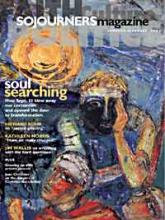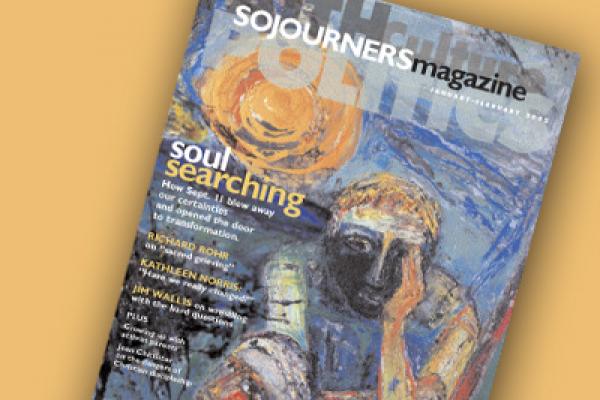Some people think that if you have a position of Christian nonviolence, you don’t have anything to say because you’re excluded from making discriminating political judgments. In a sense that is right. I always say I represent the "Tonto principle of Christian ethics." When Tonto and the Lone Ranger found themselves surrounded by 20,000 Sioux, the Lone Ranger turned to Tonto and said, "This looks pretty tough; what do you think we ought to do?" Tonto replied, "What do you mean ‘we,’ white man?"
The assumption is that our reaction should be one that identifies a "we" that combines both the American and the Christian. Yet "we" Christians are called to respond to this terrorizing event in a way that is different from that shaped by American presuppositions. I want to be very clear. Nothing that the United States has done in its foreign policy—and it’s done some very wicked things—can justify what was done at the World Trade Center. We have to step back and ask what we Christians have done that we find ourselves so implicated in the world that we cannot differentiate our response as God’s people from the American people’s response.
Stanley Hauerwas is Gilbert T. Rowe professor of theological ethics at Duke Divinity School and the author of many books including The Peaceable Kingdom, After Christendom, and most recently With the Grain of the Universe.
Read the Full Article

